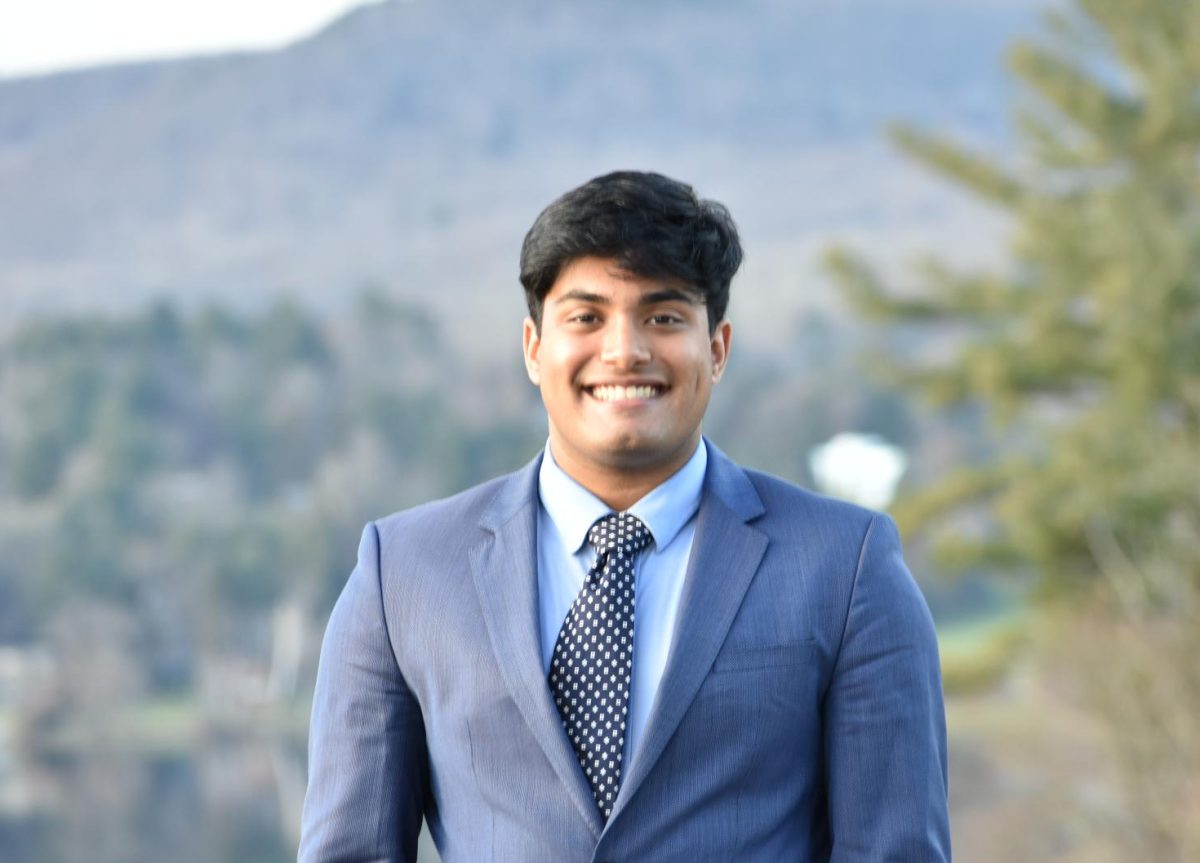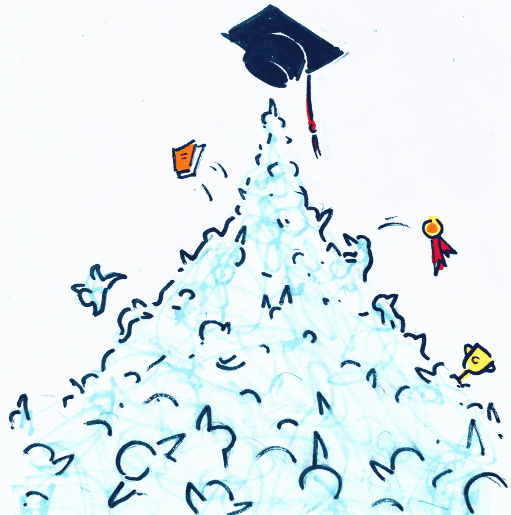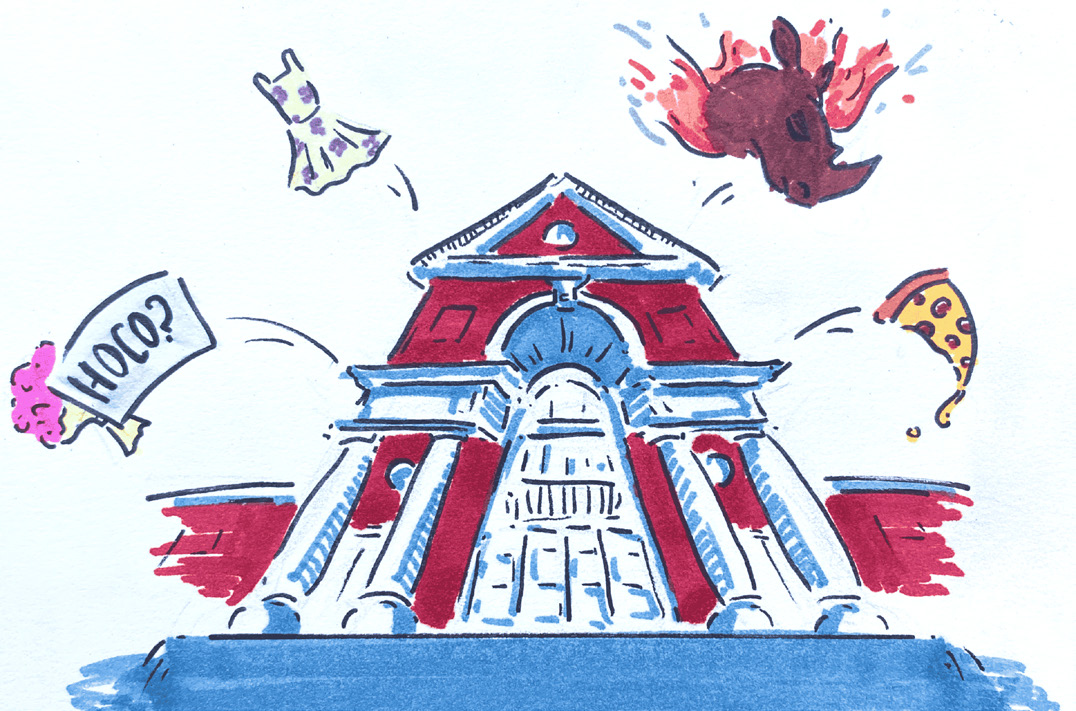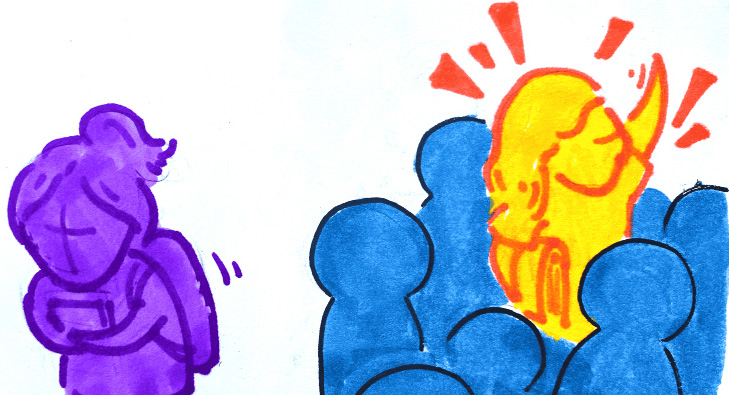As I took my first steps on the Hotchkiss campus on my first day as a new Lower Mid, all I could think was, “this is a mistake.” And in many ways, it was. Coming from a public high school with over 4000 students, and a community replete with those who looked and acted like me, my transition to life at boarding school was by no means smooth or easy. Though I had left the world of public school behind, with its culture of exclusion and separation among students of various backgrounds, I found myself now in a community deeply ingrained with a very different kind of exclusion. Everywhere it looked, I seemed as though I couldn’t help but compare myself to others. Whether it was the way I talked, or the way I dressed, or the people I spent time with, it felt as though everyone around me was hyper-aware of the things I had for so long taken for granted. With this realization, life at Hotchkiss became suffocating of the things I had for so long taken for granted. With this realization, life at Hotchkiss became suffocating. I was shackled by my fear of being judged by those around me, and though I wanted nothing more than to belong and fit in with the crowd, I could never quite seem to figure it out. As a result, I found myself drifting further away from my classmates and the few friends I had made in my first year; after talking to numerous new students, I’ve found that this is a struggle that many face during their first few months at the school. There was simply no way to break through what seemed like an insurmountable wall that stood between me and those of other backgrounds and cultures. But it wasn’t until the end of my Lower Mid year that I found a new way to consider the problem that stood before me.
In a talk I had with my swim captain, Leo Poggi ’20, a few weeks before he graduated, he gave me a piece of advice that I think would benefit every new student here: he urged me to stop judging myself by the standards of others, and told me that the only limiting factor I faced was my own mindset. Of course, I responded how any reasonable person might: I told him just how cliché and unhelpful that advice was. But while his words might have seemed obvious and redundant — we’ve certainly all heard something similar before — he impressed on me that the most important thing I could do was work to change my mindset. So, I tried to do so, at every opportunity that presented itself. I joined new clubs, forced myself into social situations, and refused to second guess my actions and the impressions they would leave on others. Slowly, I began to build for myself the life that I wanted at Hotchkiss. But my time here is marked strongly by my regret for the things I left undone. Hotchkiss has taught me who I am and how to use my individuality to connect with others and function within a community. And it’s because of these experiences that I can now offer some advice to those who still have some time left here, and those who are completely new to this place.
To echo something a few of my classmates have said in their senior reflections, we are all robbing ourselves of the “ideal boarding school experience” by being so focused on our small systems of belonging and exclusion. No student truly conforms to the central, common standard of the Hotchkiss student; even the mere existence of a norm only fosters a sense of deviance or disbelonging. Rather than grouping ourselves according to our self-determined metrics — race or ethnic group, level of income, cultural background, or political affiliation, among others — we should instead strive to interact with everyone on a mutual basis of understanding, celebrating both differences and similarities.
When asked the question ‘what do you love most about Hotchkiss?’ the most common answer I’ve heard students give is ‘the people.’ Why, then, do we insist upon dividing ourselves into tight knit friend groups composed only of those who share many of the same features and interests, and for the large part ignore the wider community? The greatest gift Hotchkiss can give us is the ability to interact and live alongside those widely different from us, united by a common purpose. Only by releasing our hyperfixation on separation and exclusivity can we truly begin to realize what a boarding school community can, and should, be.






